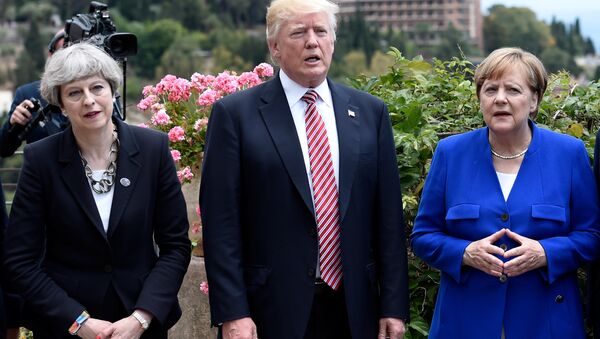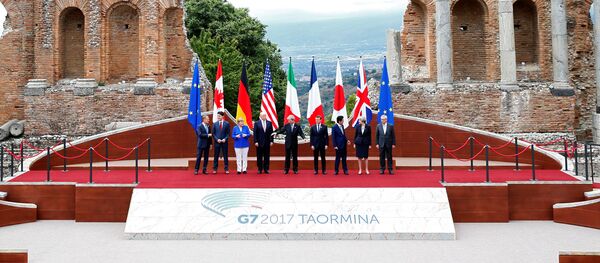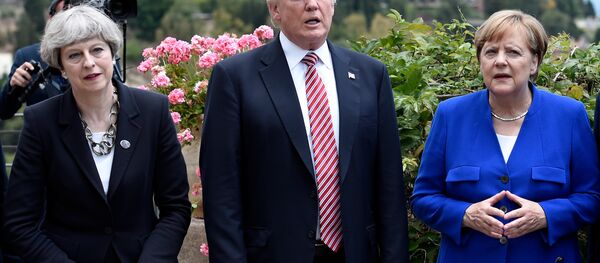Kristian Rouz – During the Group of Seven (G7) meeting in Sicily on Friday, US President Donald Trump abstained from backing the Paris climate deal despite the pressure from other leaders, in line with his electoral campaign promises to quit the climate deal altogether. The climate regulations are perceived as hampering the industrial expansion in the advanced nations, whilst promoting manufacturing growth in nations that defy the deal, which is seen by Trump as "unfair."
The Green Climate Fund, established in accordance with the Paris climate deal requires that industrialized nations pay millions of dollars each year for the alleged harm their manufacturing does to the environment. Albeit there is a rife debate of whether the CO2 emissions are indeed harmful to the environment or this is a mere hoax, as some of the US political right insist, especially compared to emissions of other chemical compounds, and heavy metal and nuclear waste, Trump's approach to the affair is quite diplomatic.
The White House sees the climate deal and related narratives as a card to be played in order to negotiate greater benefits for the US manufacturing within the Paris accords, whilst maintaining there is always a possibility the US could leave unilaterally.
"Because of existing provisions within the Clean Air Act and others embedded in the Paris Agreement, remaining in it would subject the United States to significant litigation risk that could upend your Administration's ability to fulfill its goal of rescinding the Clean Power Plan. Accordingly, we strongly encourage you to make a clean break from the Paris Agreement," a group of 22 GOP Senators, including Senate majority leader Mitch McConnell, wrote in their letter to Trump on Thursday.
German Chancellor Angel Merkel said the G7 discussions with Trump over the climate deal were "controversial," and Trump refused to endorse the Paris Agreements as is. The G7 joint statement, subsequently, included the more or less unanimous messages on terrorism, but on trade and climate change, Trump remained adamant within his "America First" concept and his skepticism over the entire climate change deal.
"There is one open question, which is the US position on the Paris climate accords," Italy's Prime Minister and host of the G7 meeting Paolo Gentiloni said. "All others have confirmed their total agreement on the accord."
Trump, on his part, was reported to have referred to the climate change narrative as a "hoax." Merkel and the French newly-elected President Emmanuel Macron, tried to convince Trump to uphold the deal, but to no avail.
Economic advisor to Donald Trump, Gary Cohn, however, provided a hint at the White House's interest in renegotiating the Paris accords more in favor of the US. Cohn said that Trump's view of the climate change is not set in stone and might change – under certain circumstances, that is.
"He (Trump) came here to learn. He came here to get smart. His views are evolving which is exactly as they should be," Cohn said. White House national security advisor H.R. McMaster, however, said that after all, Trump is inclined to do "what he thinks best for the American economy."
Trump also said he will make the ultimate decision on the climate deal after he arrives back in the US from his international trip. According to Cohn, Trump is intending to take his time before making announcements on the deal.
"This is something where I want to get to the right decision. I'd rather take my time, I'd rather understand the issues, and I'd rather get to the right decision on that," Trump said, as quoted by Cohn.
Subsequently, Trump will likely be more inclined to negotiate additional benefits for the US within the climate deal, referring to the GOP stance on the matter as an option of last resort. Unless given the required preferences within the Paris deal, Trump would feel free to exit the climate accords to a fanfare from the Republicans and US industrial sector.



